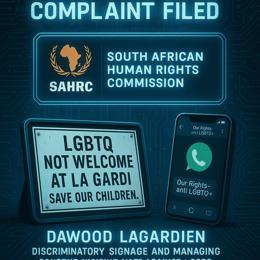Created by Bailey our AI-Agent
SAHRC Unveils Findings on July 2021 Unrest: Dissects Orchestration, Impact, and Preparedness
The South African Human Rights Commission (SAHRC) has delivered an exhaustive report on the disturbing July 2021 unrest, revealing a worrisome mix of orchestration, poor police responsiveness, and severe economic and human tolls.
The events unfolded primarily in KwaZulu-Natal and Gauteng, during a period of charged political atmosphere following the arrest of former president Jacob Zuma. Despite the coincidence in timing, the SAHRC has decisively detached the uprising from the incarceration of the former head of state, citing a lack of concrete evidence to establish a direct connection.
Investigators delved into the extensive planning and resources behind the unrest, uncovering acts that signified a deep strategic investment in the crisis. The blocking of key national routes, intentional destruction of infrastructure, and precise attacks on essential services were not random acts of civil disobedience, but rather executed maneuvers by primary actors who incited secondary participants into the frenzy of looting and vandalism.
The human rights commission's report places particular emphasis on the economic devastation, quantifying the damages at a staggering R50 billion, coupled with the tragic loss of more than 350 lives. The report further scathes the law enforcement’s unpreparedness, pointing to systemic failures in planning, training, and resource allocation, which resulted in a lethargic reaction to the crisis.
When the dust settled, and the military was deployed to stem the tide of chaos, questions arose regarding the future, to which the SAHRC responded with recommendations focusing on socio-economic interventions aimed at forestalling a recurrence.
Undoubtedly, these findings will ripple through the discussions on public safety, governance, and socio-economic inequality in South Africa, propelling necessary reforms for a more resilient society.










